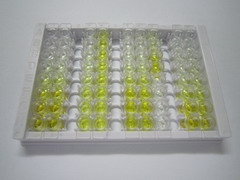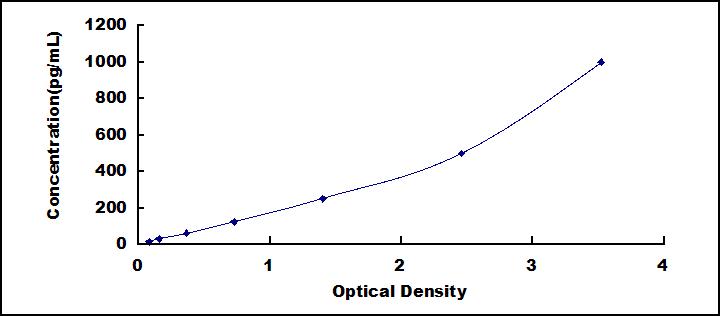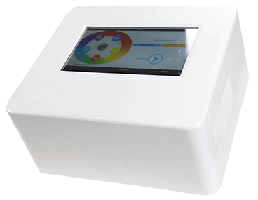Packages (Simulation)

Reagent Preparation

Image (I)
Image (II)
Certificate


ELISA Kit for C1q And Tumor Necrosis Factor Related Protein 9 (C1QTNF9)
CTRP9; C1QTNF9A; AQL1; Complement C1q and tumor necrosis factor-related protein 9A
- Product No.SER877Hu
- Organism SpeciesHomo sapiens (Human) Same name, Different species.
- Sample Typeserum, plasma and other biological fluids
- Test MethodDouble-antibody Sandwich
- Assay Length3h
- Detection Range15.6-1,000pg/mL
- SensitivityThe minimum detectable dose of this kit is typically less than 5.7pg/mL.
- DownloadInstruction Manual
- UOM 48T96T 96T*5 96T*10 96T*100
- FOB
US$ 539
US$ 770
US$ 3465
US$ 6545
US$ 53900
For more details, please contact local distributors!
Specificity
This assay has high sensitivity and excellent specificity for detection of C1q And Tumor Necrosis Factor Related Protein 9 (C1QTNF9).
No significant cross-reactivity or interference between C1q And Tumor Necrosis Factor Related Protein 9 (C1QTNF9) and analogues was observed.
Recovery
Matrices listed below were spiked with certain level of recombinant C1q And Tumor Necrosis Factor Related Protein 9 (C1QTNF9) and the recovery rates were calculated by comparing the measured value to the expected amount of C1q And Tumor Necrosis Factor Related Protein 9 (C1QTNF9) in samples.
| Matrix | Recovery range (%) | Average(%) |
| serum(n=5) | 83-101 | 88 |
| EDTA plasma(n=5) | 94-101 | 98 |
| heparin plasma(n=5) | 88-103 | 94 |
Precision
Intra-assay Precision (Precision within an assay): 3 samples with low, middle and high level C1q And Tumor Necrosis Factor Related Protein 9 (C1QTNF9) were tested 20 times on one plate, respectively.
Inter-assay Precision (Precision between assays): 3 samples with low, middle and high level C1q And Tumor Necrosis Factor Related Protein 9 (C1QTNF9) were tested on 3 different plates, 8 replicates in each plate.
CV(%) = SD/meanX100
Intra-Assay: CV<10%
Inter-Assay: CV<12%
Linearity
The linearity of the kit was assayed by testing samples spiked with appropriate concentration of C1q And Tumor Necrosis Factor Related Protein 9 (C1QTNF9) and their serial dilutions. The results were demonstrated by the percentage of calculated concentration to the expected.
| Sample | 1:2 | 1:4 | 1:8 | 1:16 |
| serum(n=5) | 97-105% | 79-98% | 99-105% | 98-105% |
| EDTA plasma(n=5) | 95-105% | 97-105% | 87-101% | 97-105% |
| heparin plasma(n=5) | 88-96% | 91-98% | 84-96% | 95-102% |
Stability
The stability of kit is determined by the loss rate of activity. The loss rate of this kit is less than 5% within the expiration date under appropriate storage condition.
To minimize extra influence on the performance, operation procedures and lab conditions, especially room temperature, air humidity, incubator temperature should be strictly controlled. It is also strongly suggested that the whole assay is performed by the same operator from the beginning to the end.
Reagents and materials provided
| Reagents | Quantity | Reagents | Quantity |
| Pre-coated, ready to use 96-well strip plate | 1 | Plate sealer for 96 wells | 4 |
| Standard | 2 | Standard Diluent | 1×20mL |
| Detection Reagent A | 1×120µL | Assay Diluent A | 1×12mL |
| Detection Reagent B | 1×120µL | Assay Diluent B | 1×12mL |
| TMB Substrate | 1×9mL | Stop Solution | 1×6mL |
| Wash Buffer (30 × concentrate) | 1×20mL | Instruction manual | 1 |
Assay procedure summary
1. Prepare all reagents, samples and standards;
2. Add 100µL standard or sample to each well. Incubate 1 hours at 37°C;
3. Aspirate and add 100µL prepared Detection Reagent A. Incubate 1 hour at 37°C;
4. Aspirate and wash 3 times;
5. Add 100µL prepared Detection Reagent B. Incubate 30 minutes at 37°C;
6. Aspirate and wash 5 times;
7. Add 90µL Substrate Solution. Incubate 10-20 minutes at 37°C;
8. Add 50µL Stop Solution. Read at 450nm immediately.
GIVEAWAYS
INCREMENT SERVICES
-
 Single-component Reagents of Assay Kit
Single-component Reagents of Assay Kit
-
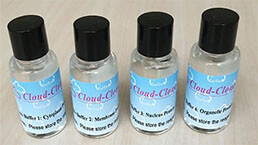 Lysis Buffer Specific for ELISA / CLIA
Lysis Buffer Specific for ELISA / CLIA
-
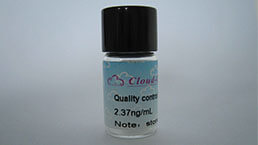 Quality Control of Kit
Quality Control of Kit
-
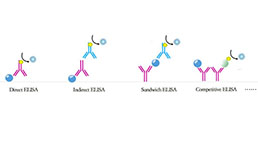 ELISA Kit Customized Service
ELISA Kit Customized Service
-
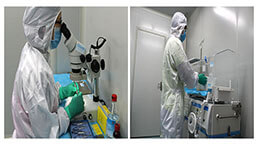 Disease Model Customized Service
Disease Model Customized Service
-
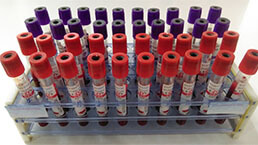 Serums Customized Service
Serums Customized Service
-
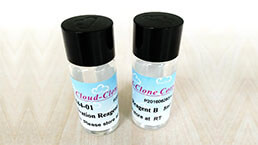 TGFB1 Activation Reagent
TGFB1 Activation Reagent
-
 Real Time PCR Experimental Service
Real Time PCR Experimental Service
-
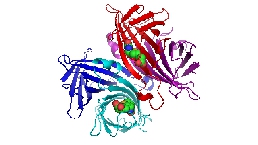 Streptavidin
Streptavidin
-
 Fast blue Protein Stain solution
Fast blue Protein Stain solution
-
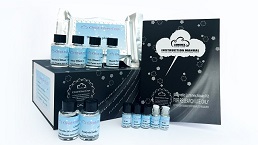 Single-component Reagents of FLIA Kit
Single-component Reagents of FLIA Kit
-
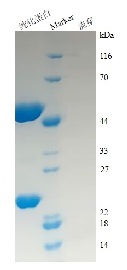 Streptavidin-Agarose Beads
Streptavidin-Agarose Beads
| Magazine | Citations |
| Int J Obes (Lond). | Association of serum C1q/TNF-Related Protein-9 (CTRP9) concentration with visceral adiposity and metabolic syndrome in humans. Pubmed: 24357853 |
| J Clin Endocrinol Metab.? | Association of Serum C1q/TNF-Related Protein-9 Concentration With Arterial Stiffness in Subjects With Type 2 Diabetes Pubmed:25105737 |
| J Clin Endocrinol Metab. | C1q/TNF-Related Protein-9 (CTRP9) Levels Are Associated With Obesity and Decrease Following Weight Loss Surgery Pubmed:26982010 |
| PLoS One. | Circulating C1q complement/TNF-related protein (CTRP) 1, CTRP9, CTRP12 and CTRP13 concentrations in Type 2 diabetes mellitus: In vivo regulation by glucose. pubmed:28207876 |
| Journal of Diabetes Research | Plasma C1q/TNF-Related Protein-9 Levels Are Associated with Atherosclerosis in Patients withType 2 Diabetes without Renal Dysfunction. pubmed:28070523 |
| diabetes research and clinical practice | Circulating CTRP9 levels are increased in patients with newly diagnosed type 2 diabetes and correlated with insulin resistance pubmed:28743061 |
| PLoS One | Association of circulating CTRP9 with soluble adhesion molecules and inflammatory markers in patients with type 2 diabetes mellitus and coronary artery … Pubmed:29381773 |
| archives of insect biochemistry and physiology | Effect of a single bout of resistance exercise on zinc-α2-glycoprotein Pubmed: 31686532 |
| J Diabetes Investig | Association of serum CTRP9 levels with cardiac autonomic neuropathy in patients with type 2 diabetes mellitus 33417302 |
| Neurol Ther | Association Between Serum C1q Tumor Necrosis Factor-Related Protein 9 and the Clinical Characteristics and Prognosis of Ischemic Stroke 34727346 |
| Catalog No. | Related products for research use of Homo sapiens (Human) Organism species | Applications (RESEARCH USE ONLY!) |
| RPR877Hu01 | Recombinant C1q And Tumor Necrosis Factor Related Protein 9 (C1QTNF9) | Positive Control; Immunogen; SDS-PAGE; WB. |
| PAR877Hu01 | Polyclonal Antibody to C1q And Tumor Necrosis Factor Related Protein 9 (C1QTNF9) | WB; IHC; ICC; IP. |
| MAR877Hu21 | Monoclonal Antibody to C1q And Tumor Necrosis Factor Related Protein 9 (C1QTNF9) | WB; IHC; ICC; IP. |
| SER877Hu | ELISA Kit for C1q And Tumor Necrosis Factor Related Protein 9 (C1QTNF9) | Enzyme-linked immunosorbent assay for Antigen Detection. |
| LMR877Hu | Multiplex Assay Kit for C1q And Tumor Necrosis Factor Related Protein 9 (C1QTNF9) ,etc. by FLIA (Flow Luminescence Immunoassay) | FLIA Kit for Antigen Detection. |

